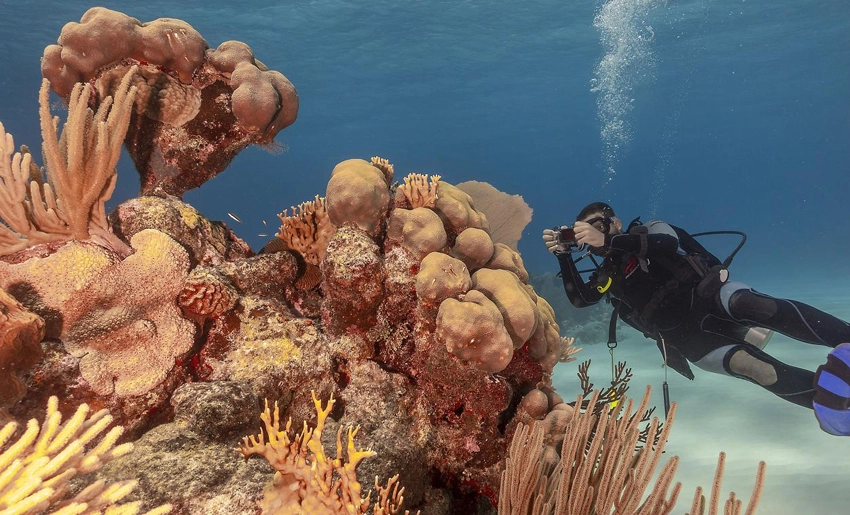Coral reefs, those vibrant underwater cities, are much more than simple rock formations. They are complex ecosystems, centers of biodiversity and true jewels of the planet. To ignore their importance and not act to preserve them would be a catastrophic mistake with global consequences.
Moreover their origin is fascinating. Reefs are built slowly, over thousands of years, by tiny animals called coral polyps that secrete calcium carbonate, creating a calcareous structure that, over time, becomes the skeleton of the reef. In symbiosis with microscopic algae called zooxanthellae, which live in their tissues, corals obtain energy and nutrients, allowing them to grow and build these impressive habitats.
They are home to approximately 25% of marine life, despite occupying less than 1% of the ocean floor. So, they are a refuge, feeding ground and breeding area for thousands of species, from goldfish to sea turtles and sharks. Futhermore they serve as nurseries for many fish species that are then caught for human consumption, making them pillars of food security for millions of people.
But their value goes beyond biodiversity. Reefs protect coastlines from erosion caused by waves and storms. Acting as natural barriers that cushion the impact of waves. They are also crucial to the economy, boosting tourism and generating income for coastal communities through diving, snorkeling and sustainable fishing.
In Cuba, reefs are distributed over almost 98% of the marine shelf edge. Cuba’s coral reef, one of the largest, richest and best preserved in the world, is also full of caves, tunnels, channels and shipwrecks, among other attractions.
However, these vital ecosystems are in danger. Climate change, pollution, overfishing and destructive fishing practices are devastating the reefs at an alarming rate. Rising water temperatures cause coral bleaching, a phenomenon in which corals expel zooxanthellae, losing their color and their ability to obtain nutrients. If bleaching persists, the corals die, and with them, the entire ecosystem that depends on them.
The preservation of reefs is an urgent task that requires the coordinated action of governments, scientists, non-governmental organizations and society in general.
We must drastically reduce greenhouse gas emissions to curb climate change. Implement sustainable fishing practices and combat illegal fishing. Reduce water pollution by preventing plastic waste, chemicals and sewage from reaching the ocean. And also create marine protected areas where reefs can recover and flourish.
Also we cannot afford to lose these unique and irreplaceable ecosystems. The health of reefs is an indicator of the health of our planet. It is up to us to act now to protect these submerged jewels and ensure that future generations can enjoy their beauty and benefit from their services.
By: Indira Vania López Samé
Translated by Aliani Rojas Fernandez
- Installation of Photovoltaic Systems in Rural Communities in Holguin - 19 de January de 2026
- 39th City Salon Opens in Holguin - 19 de January de 2026
- Habanos Festival Among Cuba’s Most Important Tourism Events - 19 de January de 2026

